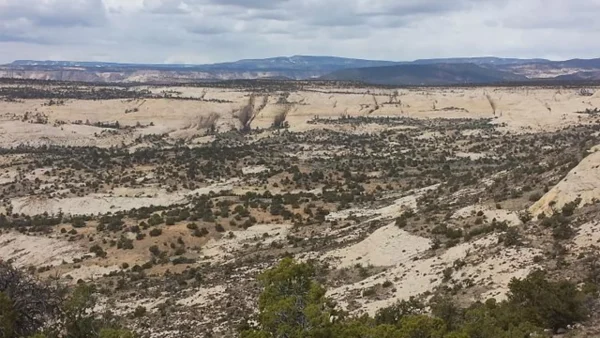Some meetings are held behind closed doors rather than in public settings as county officials work through complex issues.
In a public meeting on March 27, Garfield County Commissioner Leland Pollock defended the county’s practice of holding work meetings — which are not routine public meetings — in order to carry out the county’s business. “You’ve hired us to work,” Pollock said, “not just show up to public meetings.”
In the face of several county issues that popped up during the public meeting, the commissioners noted that several of them needed further research — to be done outside public meetings. In addition to meetings with other elected officials such as an upcoming meeting with U.S. Representative Chris Stewart, some local issues have demanded more of the commissioners’ time with certain county constituents dealing with complex problems.
Pollock contended that public meetings, which are regularly scheduled just twice a month, do not offer enough time for the commissioners to do their work. “We are blue-collar commissioners,” Pollock told The Byway. “We have to do the work that urban-county commissioners pay staff to do for them. We actually work.”
Certainly larger counties in the state have greater resources to hire staff, counsel and experts to carry out many of their responsibilities. Rural counties with fewer resources, on the other hand, rely on their elected commissioners to carry out those same functions.
But as elected officials, they are also subject to the state’s Open and Public Meetings Act, which protects the public from the government making certain decisions behind closed doors. To abide by that law, county commissioners have to tread carefully during work meetings and closed sessions.
The intent of the Act is to make sure all political subdivisions take their actions openly and conduct their deliberations openly. Some meetings are exempted under the Act, however, such as chance meetings and social gatherings. Also exempt are meetings “convened solely for the discussion or implementation of administrative or operational matters—for which no formal action by the public body is required; or that would not come before the public body for discussion or action.”
It is under this exemption that work meetings are held.
The concept of work meetings and closed meetings has been a sensitive topic for Garfield County in recent years, however.
In 2017 Southern Utah Wilderness Alliance sued Garfield, Kane and San Juan Counties over alleged public meetings violations when county officials met with then-Secretary of the Interior Ryan Zinke. SUWA argued that the meeting with Zinke should have been properly publicized so the public could attend.
The District Court disagreed, however, and dismissed the case. In the case of San Juan County, the Court also found that SUWA’s claims were so lacking in merit as to be frivolous, and that SUWA had initiated the lawsuit “for the improper purpose of intimidating the [Commission] and other similarly situated officials.”
In the Garfield and Kane case, SUWA was then fined $50,000 in punitive legal fees after the court determined they had brought the case frivolously and in bad faith. SUWA then appealed to the Utah Supreme Court, which ruled in 2021 that SUWA did in fact have standing to sue and reversed the $50,000 fine.
Satisfied with the reversal of the fine, SUWA opted to dismiss their own lawsuit against the counties rather than give the Court a chance to rule on the lawsuit’s merits.
– The Byway
Feature image caption: A view over the wilderness in Grand Staircase National Monument. Courtesy Steven Kevel/Creative Commons.

